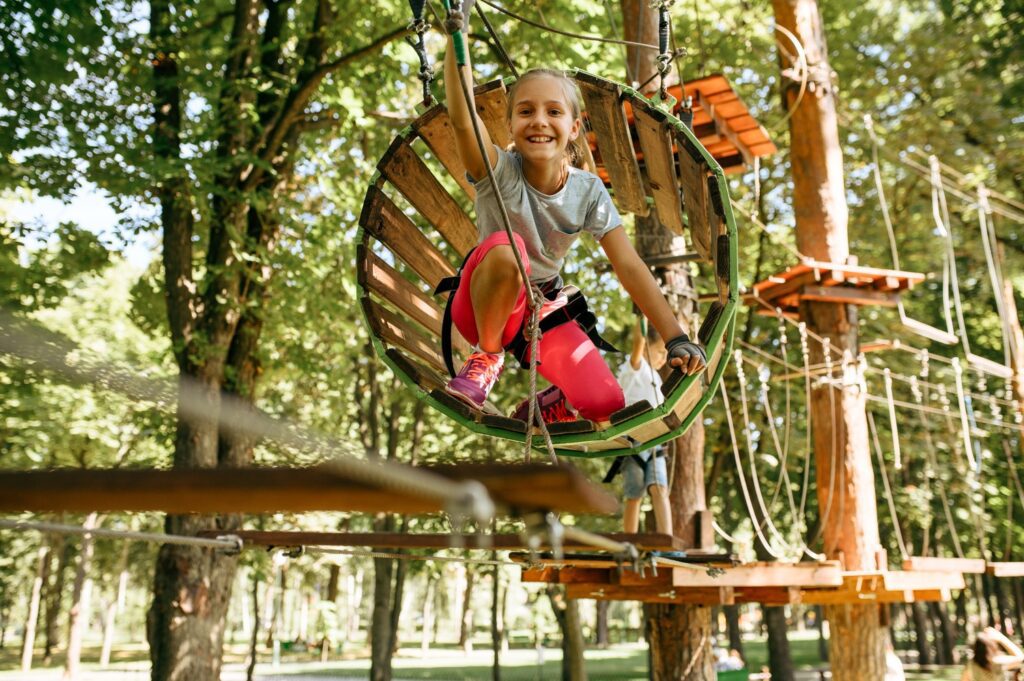Sending a child to an extreme summer camp can feel like a leap for the whole family. Parents want their kids to enjoy the thrill of new activities, but they also want them to stay safe, confident, and open to making friends. Preparation is the bridge between excitement and a smooth experience. Getting ready involves conversations, gradual practice at home, and attention to both physical and emotional needs.
Picking the Right Camp Experience
Parents can help their kids feel at ease by giving them a sense of what the week will involve. A Raleigh summer camp or similar program in your area often blends adventurous play with organized instruction. One day might focus on paintball or climbing, while another centers on group problem-solving. Some camps schedule half-day options, while others run full weeks. Reviewing the daily plan together helps children see how activities, meals, and rest time fit into the rhythm. Presenting camp as a safe space for trying new things gives them confidence before the first morning arrives.
Building Physical Readiness
Extreme camps expect kids to be active for long stretches, so conditioning at home matters. Encourage them to join you on family walks, bike rides, or light sports in the weeks leading up to camp. If the program highlights activities such as rock climbing or an obstacle course, even simple playground practice goes a long way toward building confidence.
Balance is important, too. Remind them to stretch, stay hydrated, and listen to their body. Basic stamina is what matters most, since it helps kids enjoy camp activities without wearing out too quickly.
Encouraging Emotional Preparation
Nerves are common, especially when kids face long days with new peers. Parents can help by practicing short separations like day visits to relatives or overnights with trusted friends. Talk openly about feelings and reassure them that it’s normal to be anxious.
If your child has struggled with depression and anxiety or other behavioral issues, discuss coping strategies before camp begins. Remind them that counselors are trained to listen and support. Knowing there are adults who will guide them reduces stress and helps them approach camp with more confidence.
Packing the Essentials
Review the camp’s gear list and confirm what’s supplied on-site. Programs usually provide helmets, harnesses, and other safety equipment, but kids feel more at ease when they bring familiar items like water bottles or snacks. Send extra socks, sunscreen, and a lightweight rain jacket. Labeling gear prevents mix-ups. A checklist created together lets your child take ownership, which builds responsibility before the first day even starts.
Learning New Skills
Extreme summer camps are designed to spark growth. Simple games like scavenger hunts push kids to think fast and cooperate. Activities requiring coordination and trust develop leadership skills and social awareness. Programs often weave in moments of creative expression, such as arts or role-play challenges, alongside high-energy action. Each activity contributes to cognitive expansion, showing children how to approach problems from multiple angles. Even the physical challenges encourage steady physical development while keeping the focus on fun.
Exposure to Nature
Many camps balance adrenaline with nature-based learning. Kids might observe animal habitats at a local park or explore ecosystems through jungle discovery activities. These moments connect children to the environment while also building respect for the natural world. Programs like these are a form of community education that combines outdoor play with responsibility. Parents can prepare kids by spending time outside before camp, such as gardening, hiking, or simply noticing wildlife in their area.
Exploring Adventure Activities
Extreme camps sometimes feature activities that go beyond the usual. Older campers may get the chance to try white water rafting or simulations of underwater adventures. Younger groups focus more on climbing walls, ziplines, and cooperative games. In every case, outdoor adventure camps are designed to offer a wide range of recreational pursuits that stretch comfort zones without overwhelming children.
Preparing for Team-Based Play
Many activities revolve around groups. Team paintball or problem-solving challenges may rely on gaming strategy to succeed. Parents can help kids get ready by practicing turn-taking, patience, and fairness in everyday play. Board games, pick-up soccer, or even sharing chores at home reinforce cooperation. These habits ease the transition into the group-centered structure of camp and prevent kids from feeling left out.

Educational and Developmental Benefits
Extreme summer camps support learning in subtle ways. Kids might practice survival skills through outdoor problem-solving or expand resilience by working through tough moments on a climbing wall. Some programs include sessions geared toward teen camps, giving older children more advanced instruction. Across age groups, camps provide valuable educational opportunities where kids gain independence, teamwork, and respect for nature.
Final Thoughts
Preparing a child for an extreme summer camp works best with steady, thoughtful steps. Focus on physical activity, open conversations about feelings, shared packing lists, and practice with teamwork. Each effort adds to their confidence. Arriving at camp with this kind of preparation allows them to face challenges with energy, gain lasting skills, and return home with experiences that continue to support their growth long after summer ends.


